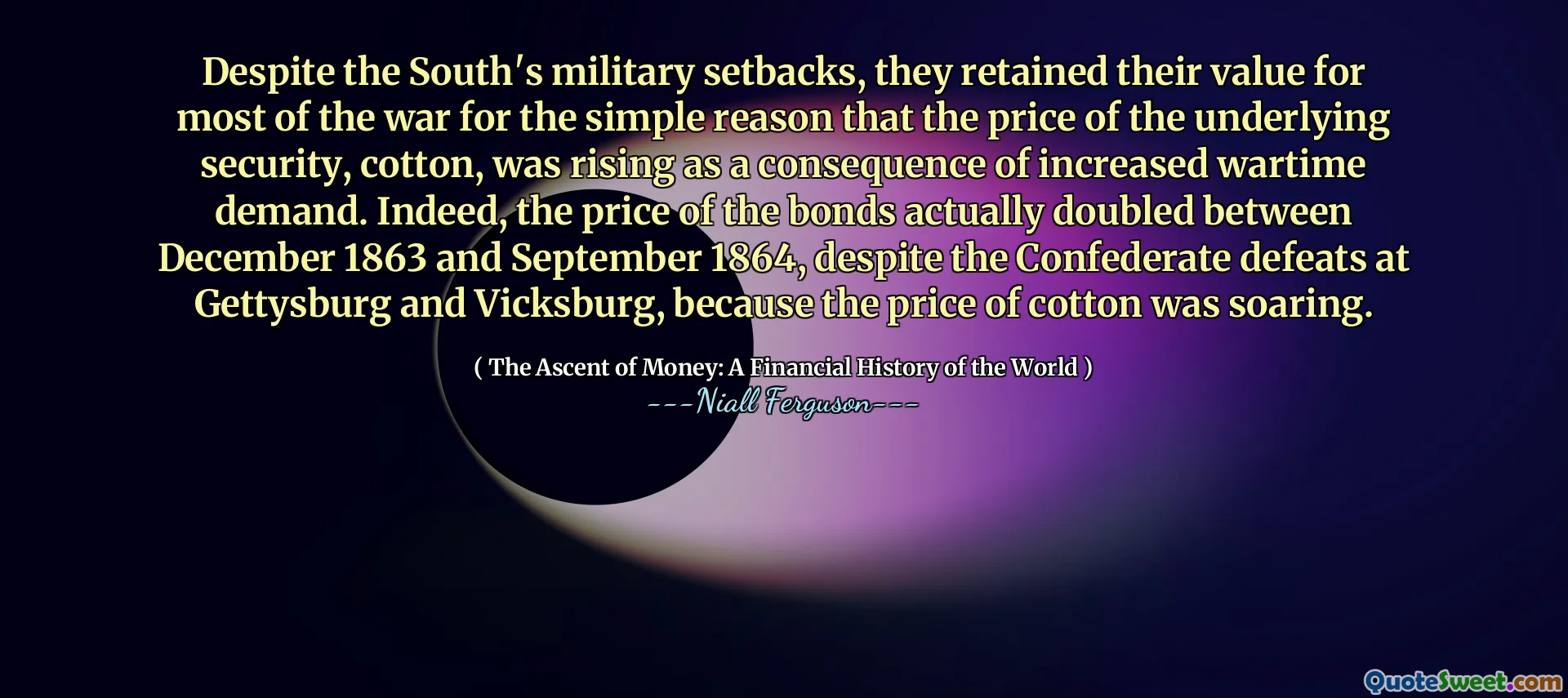
Despite the South's military setbacks, they retained their value for most of the war for the simple reason that the price of the underlying security, cotton, was rising as a consequence of increased wartime demand. Indeed, the price of the bonds actually doubled between December 1863 and September 1864, despite the Confederate defeats at Gettysburg and Vicksburg, because the price of cotton was soaring.
Even though the South faced significant military challenges during the Civil War, their financial assets, particularly in cotton, maintained their worth. The demand for cotton surged due to wartime needs, which contributed to an increase in the price of Confederate bonds. This upward trend in bond prices reflected the ongoing value of cotton, despite the South's military losses.
From December 1863 to September 1864, the price of these bonds doubled, showcasing a strong correlation between cotton prices and the financial stability of the Confederate economy during this period. This indicates that economic factors, like commodity prices, could still provide resilience in the face of military setbacks.











